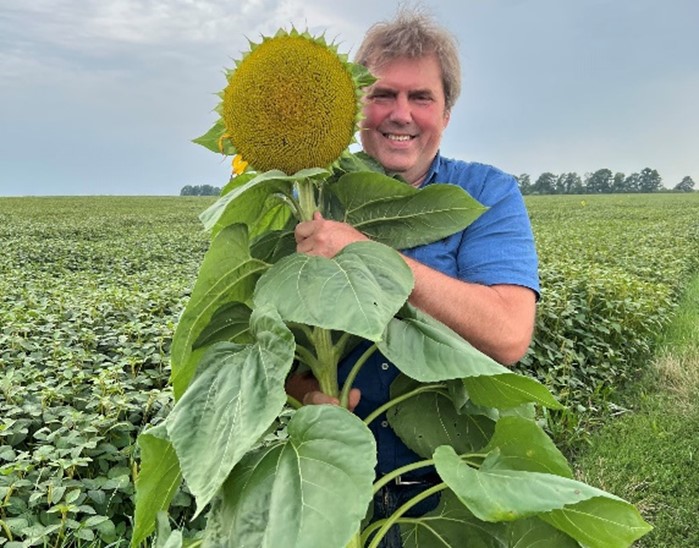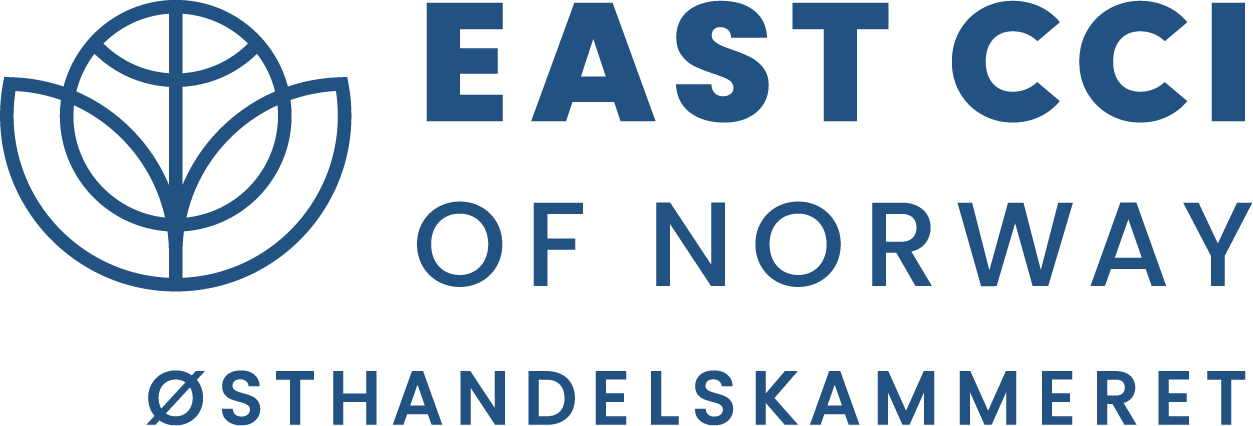
With no particular prerequisites apart from a tremendous drive to create, a good nose for people and a clear and honest way of communicating, Roar has built up a significant international business in agriculture, trade and paper. He has dared to invest in what he has found interesting and has succeeded in modernizing traditional business.
Farming
Operations abroad include 150,000 dekar of land in the Zhytomyr region 120km west of Kyiv and a “small” farm with around 400 cows, oxen and calves for meat production (as well as 3,200 dekar of land) in Paide in central Estonia.
His agricultural company produces corn, wheat, sunflower, soy and rapeseed – a total of about 120,000 tonnes.
It all started when people from the wood products industry in Estonia visited Norway in 1992 based on the desire to develop wood processing in the newly liberated country. Trust was created, used equipment was purchased and within a short time a partnership was also on its feet. At one time, the new element factory in Estonia accounted for as much as 15 per cent of the country’s exports to Norway.
The collapse of the Ruble in 1998 caused major problems for agriculture in Estonia and Roar was approached by the owners of a collective farm who wanted to sell the business. He accepted a good offer without quite knowing what to expect, but it turned out that a radical restructuring and investment was necessary. It eventually went well and the business grew with two additional land lots that he chose to sell in 2008.
-The offer was so good that I was able to become debt-free with everything I had. I had seen that in difficult times, you rarely have the bank as your friend. That’s why I decided I would never be dependent on a bank again, says Paulsrud.
Earnings from the business were reinvested in forest land in Russia and farm land in Ukraine – areas that lay fallow in 2005. The ownership demanded a major investment programme in machinery, equipment and a long-term effort to get the soil productive again. The surrounding area also had its problems, but based on the philosophy that safe employees work better, he helped to rehabilitate schools and kindergartens, and restore roads.
The leaders of our companies have become my friends. They have a large degree of freedom and good wages, but we have zero tolerance for theft, corruption and alcohol. A nurse test the employees every morning and everyone who is going to drive a tractor must blow an alcometer. The nurse also measures blood pressure. If she finds something serious, we get the employee into a hospital, where we pay for the treatment. We have become a very attractive workplace because we take good care of our employees, – says Roar.
Paulsrud has also helped to ensure that the necessary equipment to alleviate emergencies at local schools and hospitals has been collected in Norway and sent to those in need.
Paper
Roar Paulsrud also owns and operates the wood processing companies Hellefoss Paper in Hokksund and Vafos Pulp in Kragerø. He has proven that it is possible to be profitable even if you are a small player on the world market.
-You might ask how well we fare in competition with the major producers, and the answer is quiet good! There are three reasons for that. First, as a small producer we have a high degree of flexibility to produce what the customers want from us. Second, the transport out of the country is relatively cheap. And third, that improved economics from scale in paper production is relatively low.
In 2021, Paulsrud invested NOK 35 million in the operations in Hokksund and NOK 15 million has been spent on modernising its sister company Vafos.
-We believe in the future for small and efficient businesses in Norway, says Paulsrud.
Trade
In addition to the agricultural company, which has 82 employees, Roar Paulsrud also owns 51 percent of the shares in a Ukrainian company that sells all types of supplies for the agricultural sector, except tractors, machinery and equipment. This company has more than 200 employees and is the fourth largest supplier of seeds, fertilizers and pesticides in Ukraine. They have outlets and warehouses in all regions of the country.
– There is a very high degree of corruption in Ukraine and this has been a big problem for the Ukrainian people for a long time. That’s why we’ve hired Ukrainian lawyers in our companies to make sure we follow the regulations that apply at all times.
He is also active in the trade of grain products and Paulsrud is not impressed with how the foreign suppliers and traders are treating the Ukrainian farmers in the current situation. There is a huge gap between prices on the world market and the prices farmers in Ukraine can achieve. Many traders take advantage of the difficult situation. I think this is unpleasant.
After the recent attacks on Black Sea ports, the possibility of exporting cards has become an even greater challenge.
Future
Naturally, Roar now devotes a lot of his time to the business in Ukraine. Before the war, growth and large investments in grain dryers and silos were planned, but this was not to happen.
-Before the war, I asked my employees and my Ukrainian partner to move all our warehouses in the border areas westwards and I had to use my ownership power to get them to make the move, Paulsrud said.
This avoided heavy losses, but the consequences of the war have nevertheless been considerable. Many of the employees fought at the front and have been wounded or killed, and many of the women and children had to be brought to safe “custody” in Norway.
The Ukrainians are strong, but the damage the war has been and still is, inflicting on communities and people is enormous – not least because many have had to leave their homes and many combatants are disabled. Therefore, Roar now devotes a lot of time into a project planning to build new homes for these wounded people and seeks both authorities and private companies as partners.

